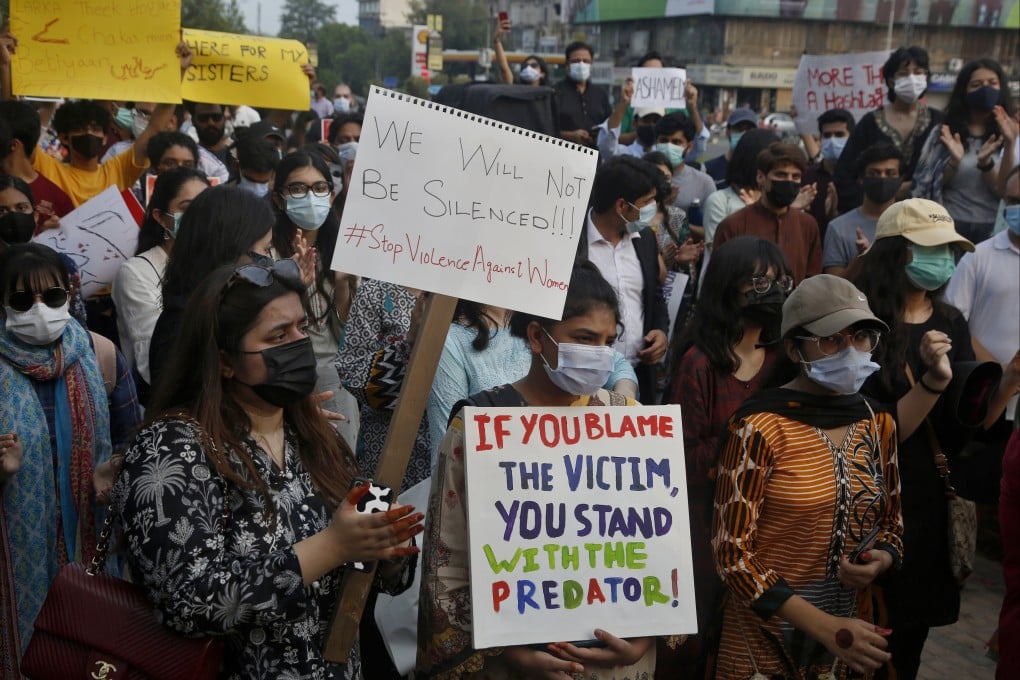Beheaded, groped, beaten: violence against women in Asia is reaching alarming levels
- Women have faced increased violence and abuse during the Covid-19 pandemic
- Some of the most egregious cases involved a young woman who was beheaded in Pakistan and a domestic worker who alleged being beaten by her employer in Hong Kong

On the heels of International Day for the Elimination of Violence against Women, This Week in Asia is highlighting some forms of violence that women and girls are grappling with:

Tortured, beheaded, and groped
Among the most recent high-profile cases was Noor Muqaddam, 27, who was tortured and beheaded in Islamabad in July. According to the local press, the charge sheet said that Zahir Jaffer, the main suspect in the case, kept her captive for three days and, when she tried to escape, the security guard and the gardener shut the main gate.
Jaffer’s parents were also charged with abetting the crime because the pair allegedly knew that Noor was being held against her will, but did not inform the police.
In August, Ayesha Ikram, a TikTok creator, was harassed and groped by some 400 men while she was shooting videos in Lahore’s Greater Iqbal Park.
“The crowd was huge and people were scaling the enclosure and coming towards us. People were pushing and pulling me to the extent that they tore my clothes,” she said in a police statement, according to local news outlet Dawn.